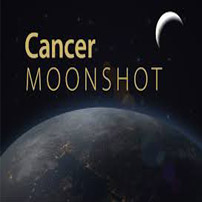 One of the primary difficulties cancer research has faced in the United States and across the globe is the reluctance (or in some cases, inability) of researchers to freely share their data with one another. This issue has not only caused the advancement of cancer research to advance more slowly in many areas, but in some cases has caused researchers to perform redundant research without even knowing it. Some experts think this may all start to change, however, due in part to the Cancer Moonshot Initiative created by the Obama administration.
One of the primary difficulties cancer research has faced in the United States and across the globe is the reluctance (or in some cases, inability) of researchers to freely share their data with one another. This issue has not only caused the advancement of cancer research to advance more slowly in many areas, but in some cases has caused researchers to perform redundant research without even knowing it. Some experts think this may all start to change, however, due in part to the Cancer Moonshot Initiative created by the Obama administration.
In his final State of the Union address in January of 2016, President Obama asked Vice President Joe Biden to lead a new program in the fight against cancer. Named because of its comparison to John F. Kennedy’s push for a moon landing in the 60s, the Cancer Moonshot Initiative seeks to push the medical scientific frontier one step further by increasing funding for researchers and encouraging collaboration. The program includes the heads of various government bodies, including the Departments of Energy, Commerce, Defense, and Veteran’s Affairs, as well as the FDA, National Cancer Institute, and National Science Foundation, among others. These entities propose to assist the program by helping develop new treatment methods and creating new partnerships between private sector and public researchers.
The Cancer Moonshot Initiative’s focus is very broad, covering the treatment of as many types of cancer as is feasible, and thus it is not focused only on treating mesothelioma. However, some of the more promising treatments for mesothelioma are relatively new, and stand to benefit from the Cancer Moonshot Initiative’s push for increased research into alternative or experimental cancer treatments. For example, Keytruda and Opdivo, two antibody therapies, are already extending life expectancy for mesothelioma patients, and having increased funding for research would mean more options and more effective treatments.
Asbestos has affected the lives of many, and although it has been banned in 52 countries worldwide, it is still permitted in the United States. However, patients suffering from mesothelioma as a result of asbestos exposure now have renewed hope of expanded treatment options in the future.
If you or a loved one suffers from mesothelioma as a result of asbestos exposure, Philadelphia mesothelioma lawyers at Brookman, Rosenberg, Brown & Sandler can help. Serving clients across Pennsylvania and New Jersey, we assist in securing compensation for medical expenses, wages lost, and more. Contact us online, or call 1-800-369-0899 for a free case consultation.